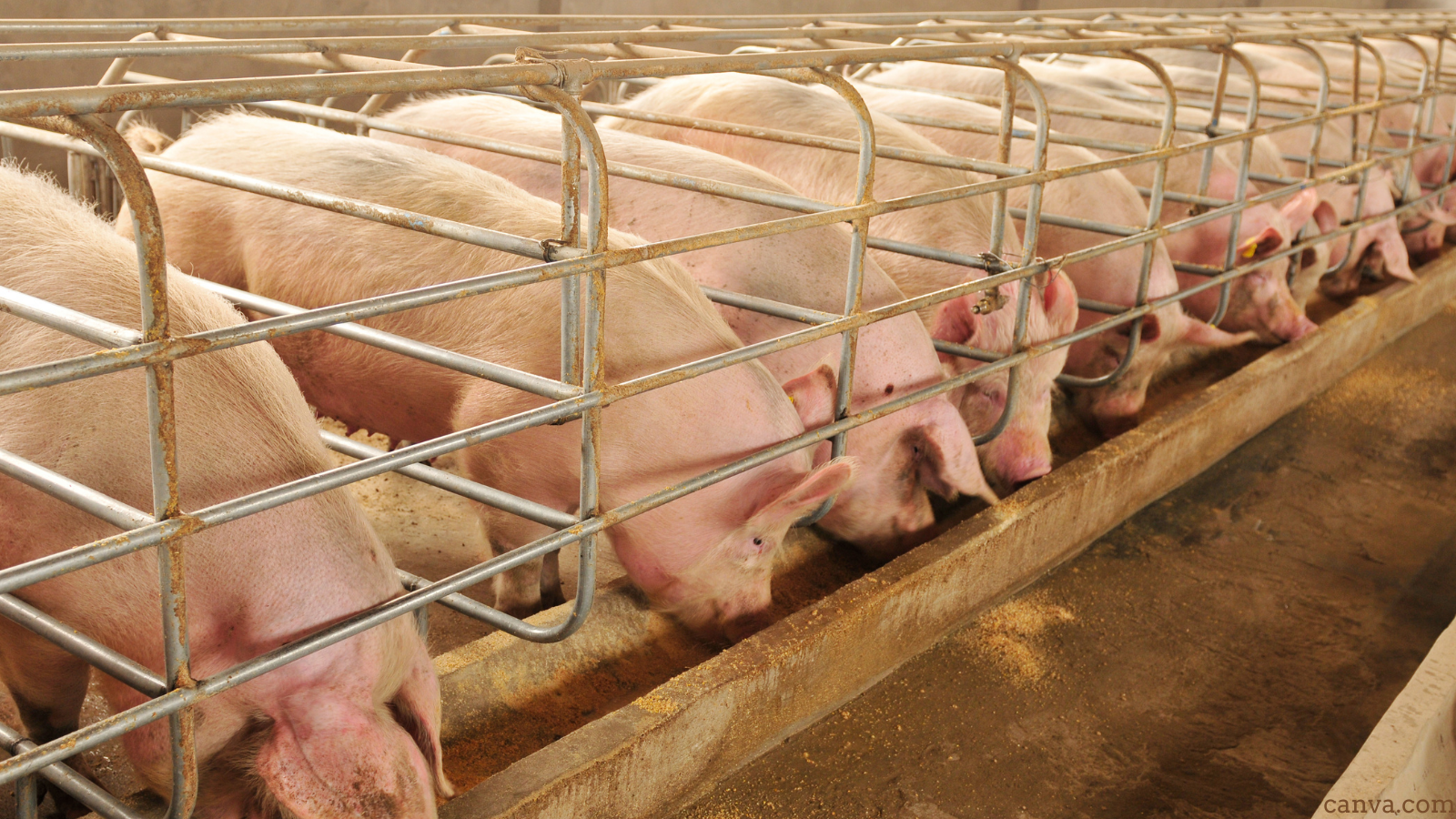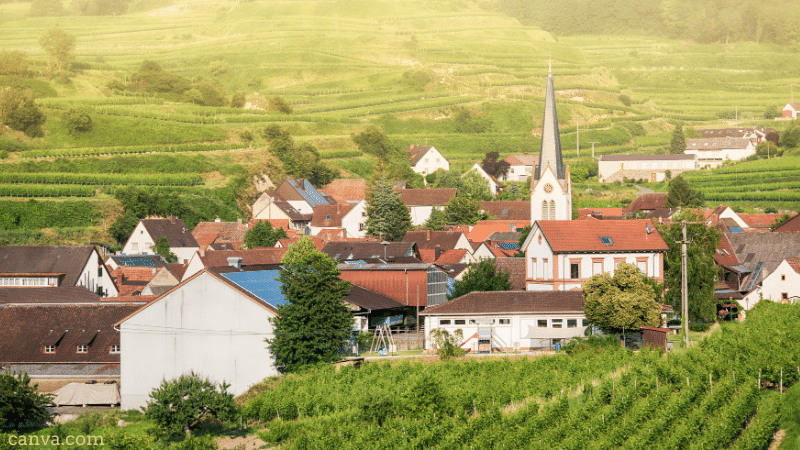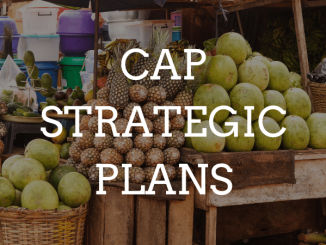
A new German government coalition of Socialists, Liberals and Greens – known as the “traffic light coalition” – has put a new farming and food policy on its agenda. ARC2020 President Hannes Lorenzen provides insight into the agreement reached between the coalition parties.
Following the elections for the Federal German Government in September this year and subsequent negotiations between the Social Democrats, the Greens and the Free Democrats, the so-called “traffic light coalition” agreed upon a coalition programme for the coming four-year legislative period of the German Bundestag.
Under the upcoming chancellorship of Olaf Scholz – who was Minister of Finance in Angela Merkel’s fourth cabinet – the Social Democrats will lead the ministries for internal affairs, employment, defense, public health, building and development cooperation; the Greens will steer the ministries for foreign affairs, a new ministry for economy & climate, environment & consumer protection, agriculture & food policy and family/gender/youth affairs; the Liberals will be responsible for the ministry for finance, traffic & digitalisation, legal affairs, and research & education.
A three party coalition is a novelty in Germany, and it seems not to have been easy to find common ground and trust, especially between the Greens and Liberals. But two months of talks seem to have been serious enough to agree upon a 177 page work outline which covers a broad range of common goals and good intentions, but also some remarkable steps into immediate restructuring and action to respond to the many crises and challenges Germany and the European Union face today.
A Green Minister for Agriculture and Food
The coalition will start its work in the middle of a heavy fourth wave of the pandemic in Germany and will have to focus on public health and economic support measures in the first instance. Simultaneously, a number of foreign affairs urgencies await immediate action and consultation with EU partners. Maybe this will leave some calm space in the heart of the storm for the designated Green Minister for Agriculture and Food Cem Özdemir, former chair of the Green Party, as well as former Member of the German Bundestag and the European Parliament.
Özdemir is new in the field of farming and food policy and will need some time and support to take on the burning issues in the sector. However, being a curious newcomer and the fact that the responsibilities for economy, climate, energy, environment, agriculture and food are in the hand of one party, the Greens, could help to overcome silo-thinking and tensions between the ministries and allow for new political synergies and cooperation early on.
The sections concerning agriculture & food in the coalition agreement range from substantial changes in animal production rules, animal welfare and animal health measures moving on to some first steps into pesticide reduction including banning glyphosate by 2023, a boost for organic farming (30% by 2030), and broader ambitions to contribute to biodiversity protection and climate measures.
Download the Coalition Agreement (in German) here.
A mandate to adjust Germany’s Strategic Plan?
Surprisingly, there is only one short paragraph in the entire coalition agreement on European Agricultural Policy (CAP). It points to an adaptation of national regulations of the CAP Strategic Plan (CAP-SP) in the short-term, and foresees a mid-term review of the Strategic Plan and a long-term vision on future CAP reform:
“We will immediately ensure that the accompanying regulations to the national strategic plan of the Common Agricultural Policy (CAP) are adapted with the aim of environmental and climate protection as well as income security. The current architecture will be reviewed by the middle of the legislative period at the latest and adjusted to achieve the objectives. For reliable further development from 2027 onwards, the German government is presenting a concept with this evaluation on how direct payments can be adequately replaced by rewarding climate and environmental services. This also serves the purpose of income effectiveness.” (page 44)
Such short reference on the implementation of the EU’s CAP reform in Germany may imply that the new coalition considers the CAP reform and the German National Strategic Plan done and dusted for the coming programming period. The Plan was elaborated under the former conservative farm minister Julia Klöckner and does not reflect the ambitions of the new government. How far the new government will go during upcoming negotiations with the European Commission to adapt the plan to the ambitions expressed in the EU Green Deal and the Farm to Fork strategy during the first half of 2022 remains to be seen. The Commission expects climate and biodiversity adjustments from EU member states, especially from a new Green farm minister.
So it is indeed quite possible that the new Farm and Food Minister interprets the coalition agreement as his mandate to adjust the German Strategic Plan before it is sent to the EU Commission and to ensure consistency with the Green Deal before the negotiations with the Commission start. The content of the CAP-SP and the starting position is now more important than formally meeting the current deadline of December 2021 and it is quite common that a new government adjusts its position following elections. Furthermore, an evaluation of the green architecture in the CAP-SP by 2024 has been firmly agreed and is expected to bring further changes. This could coincide with new EU regulations expected for implementation of the EU Farm to Fork strategy.
There is also some interpretation needed to understand the vision on CAP post 2027, considering a “replacing of direct payments” – an idea seemingly drawn from the recommendations of the “Commission on the Future of Agriculture”. This Commission was initiated by Chancellor Merkel in 2019, at a moment of a deep crisis in the farm sector. The consultation process leading to the set of recommendations included a broad range of stakeholders from farmer organisations, nature protection, animal welfare, consumers and environmental NGOs. It is widely considered as the basis of a new social contract for future farming in Germany and could enable the coalition to reach broader agreement in German society for the ambitious changes envisaged for the coming years.
Food and farming proposals in the agreement
As short as the reference to the CAP reform may be, the section on improving the rules for animal production, animal health and animal welfare is much more comprehensive. This item has also been at the core of the agreement of the Commission on the Future of Agriculture, with the goal to extensify strongly industrialised German animal production – at least in some regions – with an also very intensive crop and animal feed production so as to achieve a more balanced ratio between livestock and cultivated land. This part in the coalition agreement reads:
“The development of livestock shall be oriented towards the land area available and shall be in harmony with the objectives of climate, water and emission protection (ammonia/methane). We want to reduce emissions from ammonia and methane, taking animal welfare into account. Farmers are to be supported on the way to climate neutrality as part of the restructuring of livestock farming.” (page 43)
Also animal welfare measures are planned to be geared towards the restructuring of production facilities with stable buildings more appropriate for each animal species. The measures include improved animal transport and decentralised slaughter facilities including dedicated origin labelling and information campaigns:
“From 2022 onwards, we will introduce mandatory animal husbandry labelling, which will also include transport and slaughter. Our goal is to have corresponding binding EU-wide uniform standards. We will also introduce comprehensive origin labelling. We accompany the introduction with an information and education campaign. We want to support farmers in their efforts to improve livestock farming in Germany in a manner appropriate to the species.”
However, with regard to the costs, the financial system for this transition is to be “carried by the market participants, the revenues of which would be used to compensate for the running costs of farms and to promote investments without imposing a bureaucratic burden on trade.” (page 43)

To what extent this important transition into more extensive and climate friendly animal production will be financially supported by the German State will be one of the most difficult items to be solved between the Liberal Minister of Finance – wishing to reduce public support and subsidies in general – and the new Green Minister for Agriculture and Food – needing to balance stricter climate and environment rules with financial support for transition.
The coalition agreement also foresees an ambitious target for transition towards organic farming and the reduction of pesticides in conventional farming:
“Species extinction and the loss of biodiversity, is another ecological crisis. We want to limit the use of plant protection products to what is necessary. We want to ambitiously reduce their use with the following measures: We will orient all agriculture in its diversity towards the goals of environmental protection and resource conservation. We want to further develop agriculture in harmony with nature and the environment. We want to achieve 30 percent organic farming by 2030. To this end, we want to increase federal funding for the Federal Organic Farming Programme and, in line with the expansion target, make agricultural research funds available for research into organic farming. We are expanding the strategy for the future of organic agriculture to include the entire organic value chain.” (page 45 )
On plant breeding methods and climate resistant plant varieties the coalition text avoids a clear positioning on new plant breeding methods. It mentions the approach of developing genetic diversity in population varieties and foresees transparency about plant breeding methods in general:
“We want to support the breeding of climate-resistant plant varieties. To this end, we are improving the framework conditions for population varieties, promoting model projects such as crowd-breeding and digitalisation, creating transparency about breeding methods and strengthening risk and detection research.” (page 46)
Digitalisation in agriculture is mainly defined in the coalition agreement through free of charge access to public data which are relevant for farmers, while a qualification of the digital approach in structural and socio-ecological dimensions is missing.
“We will make the public data needed by agriculture and nutrition easier and in appropriate quality and timeliness to authorised users – free of charge. To this end we will develop a genuine platform with central access to all government data and services, especially for relevant administrative services. Government data from all administrative levels should in future be made available in standardised formats. The Agricultural Data Space in Gaia-X as the basis of a European data infrastructure with clear rights of use for farmers to use the farm-specific data which they have helped to create, will be further developed with standardised interfaces. Open source formats are explicitly supported.” (page 46)
Food policy is mostly presented as a combination of improved public procurement measures and state interventions to improve fair competition. A nutrition strategy is to be adopted by 2023 with the view to creating a healthy environment for nutrition and exercise. Updated standards of the German Society for Nutrition are to be established as standard in communal catering with an increased proportion of regional and organic products. Regarding Food wasted, binding measures will be introduced to reduce food waste, clarify liability issues and facilitate tax relief for donations.
Alternative protein sources, stricter advertising rules for sugary, fatty and salty foods, an EU-wide Nutriscore and criteria for an ecological footprint are also on the cards for the traffic light coalition:
“We strengthen plant-based alternatives and advocate for the approval of innovations such as alternative protein sources and meat substitutes in the EU. Advertising directed at children for food with high sugar, fat and salt content should not be allowed in future in advertising formats for children under 14 years of age. We will further develop an EU-wide Nutriscore in a scientific and in a generally understandable way. We support the development of criteria for an ecological footprint.” (page 45)
On fair competition the agreement focusses on antitrust supervision and market monitoring:
“We support fair competition with fair prices in the food market. We will strengthen antitrust supervision and merger control at the Federal Cartel Office. We will take action against unfair trading practices and examine whether the sale of food below production costs can be prevented. We will continue to monitor the milk market and evaluate the balance of supply relationships.” (page 47)
(See also the fair trade advocacy office’s analysis on fair trade aspects here.)
On land and soil policy, the support for a new EU soil directive is a positive sign, however a clear strategy or definition for a carbon policy or a protein or leguminous crop strategy is not further developed in the text:
“We are actively following the EU Commission’s debate on the “Carbon Removal Certification Guidelines”. We need an update of the Soil Protection Act, a soil monitoring centre and we must support the EU with a soil directive. We are stepping up research and funding on climate-friendly crop production. For this purpose, we are launching a federal programme “Sustainable Arable Farming”. We continue to develop the protein crop strategy.” (page 47)
Rural development and possible restructuring of the spending in CAP Pillar 2
German rural development stakeholders had suggested a new joint task force for rural areas and an increase in the share for integrated rural development programming. However, the coalition agreement only provides for additional funding for nature conservation and climate adaptation. Nevertheless under the heading “Good conditions in rural areas” the agreement provides for an annual dynamic increase in funding for the German Länder programmes, as well as expanded opportunities for infrastructure funding and more flexible application.
Furthermore, the coalition wants to support citizen participation in the responsibility of local self-government, e.g. in regional development concepts, regional management and regional budgets. A strengthening of the rural bottom-up approach via LEADER and CLLD via the German GAP strategic plan is not specifically mentioned.

A green light for the future of farming and food in Germany?
Making German agriculture and rural regions fit for the future will be an enormous challenge for the new coalition. As the optimistic but still rather vague agreement needs to be transformed into legislative projects and important public and private investments, a wide range of potential conflicts of interests and manyfold ideological differences wait to be tackled and solved.
The dismantling of the German meat sector, perhaps the most industrialised agricultural complex in Europe will not happen overnight and the highly concentrated food processing sector is not moving into decentralized and smaller structures without public guidance and support. Farm and food workers will benefit from a considerable general increase of the minimum salary in Germany. Ambitions to create fair working conditions in the meat processing industry will need strong rules and supervision. And a country producing much of the world’s farm chemicals will need comparable rules for not exporting what Germany refrains from.
So will there be a green traffic light for the future of farming and food in Germany? Will the ambition of the new coalition emanate into Europe and give climate, biodiversity and farmers a boost to make the changes so urgently needed happen? The coalition agreement is certainly more a guideline than a work programme for the coming years. However, political substance needs to be translated quickly into legislative proposals and programming of the measures laid out as strategic intentions.
Having campaigned for a “climate government” with the goal to fulfill the Paris agreement and to launch transition towards a long-term sustainable farming and food system, the Greens have raised high expectations among their voters and in the broader German society. A new political momentum is here. If the Green ministers define their project as a convincing one in the ministries now in their hands an important step into system change can be achieved. They will need support from a society that is ready for change – farmers, environmentalists, climate activists, consumers and the broader society. Europe would gain from such a move.
More on Germany
Germany | Hitch Up the Wagon it’s Time to Transform Agriculture
CAP Strategic Plans: Germany Taking Steps in the Right Direction?
Germany | Traditional Wine-Making Feeling The Heat of Climate Change





